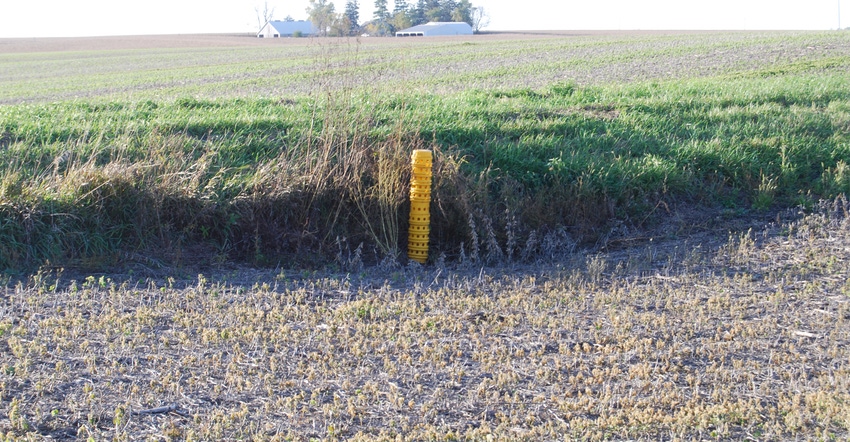May 31, 2018

USDA’s Natural Resources Conservation Service and its partners are seeking applicants wishing to implement conservation practices in Regional Conservation Partnership Program project areas. The deadline to submit applications through RCPP is June 15.
Through RCPP, conservation partners develop projects and provide funding with technical and other financial help from NRCS. The projects vary in scope, from national level to statewide to critical conservation areas. Iowa’s priority resource concerns include water quality, soil health, retention of grasslands and forestlands, flood reduction, and wildlife habitat.
These projects have funding available:
• Regional Grassland Bird and Grazing Land Enhancement Initiative (southernmost 21 counties in Iowa)
• Improving Working Lands for Monarch Butterflies (statewide, with focus on Interstate 35 corridor)
• Midwest Agriculture Water Quality Partnership (various Iowa watersheds)
• Upper Cedar Watershed Urban-Rural Partnership (Rock Creek Watershed in northeast Iowa)
• Fox River Water Quality Project (Fox River Watershed in southeast Iowa)
• Innovative Conservation Agriculture Project (Allamakee and Clayton counties)
For more information about RCPP, including project maps and descriptions, visit RCPP. To apply for conservation practices through RCPP, visit your local NRCS field office.
Pilot project to boost conservation planning
In other news from NRCS, a new pilot project will add the expertise of private-sector technical service providers (TSP) to help Iowa farmers prevent two major causes of soil erosion, improve soil productivity and measure the return-on-investment for conservation work addressing those resources.
Producers of annually planted commodities in Iowa, Mississippi, North Dakota and South Dakota will have the opportunity to hire TSPs who will work with NRCS to develop soil resources planning conservation activity plans. These plans, known as CAP 132, will prevent sheet and rill erosion, restore organic matter in soils, and provide economic information producers can use to make conservation decisions.
USDA partners with private sector
"Bringing on TSPs who can leverage precision ag technology and supplement our soil conservation efforts will help more farmers use economic information to make sound decisions to protect and regenerate their soils,” says Jon Hubbert, acting state conservationist for NRCS in Iowa. “Empowering TSPs to take on these important tasks will also extend the focus on the customer service NRCS provides to ensure producers get the help they need to be productive and profitable.”
NRCS field offices began accepting applications for the pilot project in early May. Deadline to apply is NRCS’ close of business on June 15.
Successful practices and methods developed through the pilot project may be adapted for use in other states and help inform future USDA conservation policies. NRCS administers the project through the Environmental Quality Incentives Program.
Helping farmers protect soil
TSPs are individuals or businesses who have technical expertise in conservation planning and design for a variety of conservation activities. Farmers, private businesses, nonprofit organizations and public agencies hire TSPs to provide these services on behalf of NRCS.
NRCS must approve plans and practices recommended by TSPs to ensure they meet the agency’s standards.
Every certified TSP must be trained in development of at least one conservation activity plan, and verify they have the essential knowledge, skills and abilities to be a TSP. NRCS encourages everyone interested in finding out more about becoming a TSP or the TSP pilot project to contact their local NRCS office.
Johnson is the public affairs specialist for NRCS in Iowa.
About the Author(s)
You May Also Like




